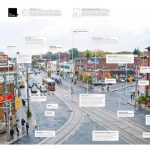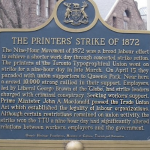
By John Myers
This habit of mind began early in my teaching career, as did the habit of doing a review of a course after teaching it a few times in response to new learning, new policies, and new challenges from the diverse classrooms I have taught.
In this case I have taught 6 classes of the Masters of Teaching (MT) course, Authentic Assessment, over three years. The course is taught at the end of the first year of the MT program in May and June when students are tired. We use the first year’s practicum experiences (2 four-week sessions) as a springboard to their work in this course. I have consulted some of you in shaping this course. The following remarks and analyses made are based on nearly 180 students doing more than 350 practicum placements in hundreds of schools in many subjects.
The major assignment is one that should interest readers as it is based on MT students’ practicum experiences. The assignment asks students to
- identify an issue and reshape into a research question with a rationale connected to their experiences during but not exclusive to practicum
- describe sources consulted, issues examined, and sources discounted
- note the role of Growing Success and/or EQAO in addressing their chosen issue
- offer potential solutions/resolutions and identify implementation challenges
- summarize their essay by offering advice to others with similar concerns (accompanied by a brief session in which they present orally to like-minded small groups and have a follow-up discussion).
The tight timeline of the course was a constraint for wide consultation of research. Other challenges were the “confirmation bias” for some issues such as the value of EQAO and that MT courses taken during the first year varied greatly in their attention to assessment issues.
With regard to Growing Success for some questions it was helpful, for other issues it was too vague, or not really relevant, as the following will attempt to demonstrate.
The Issues and Some Elaborations on What We Found
As you read this section ask yourself how much of MT students’ questions and concerns compare with yours, given your teaching experience?
The papers to date are classified into eight general areas. Some of these overlap.
- EQAO and large-scale assessment, how valuable is such public accountability? Some students were actually pro-EQAO. We had someone from EQAO- a former high school student of mine- talk to my classes and present background to EQAO work.
- How do we fairly assess ELL students (very popular this year) and other accommodation needs students have? Much of this concern falls into the following two areas.
- How can we assess literacy, especially writing? This parallels work on literacy I have been involved with in New York State in recent years. Despite positive results province-wide, literacy is still an issue in the minds of my students.
- How can we be “fair” and avoid teacher bias? (In my first year teaching this course teacher bias was the biggest focus). One area short-changed in this course, in part because of the tight scheduling, was giving students opportunities to actually grade or do “moderated marking”* in which they mark a common paper and meet to establish what we call “inter rater reliability”. We did a little for literacy and numeracy in the EQAO sessions but not enough. I did this in my early years of teaching and in training for marking the New York State Regents exams. Fortunately some of my students this past year had done moderated marking in grading EQAO work prior to my classes.
- How do we assess “creativity”? I think you can identify some of the issues around this issue, especially since creative and critical thinking are considered important 21st competencies
- How do we best use alternatives to traditional assessments? Issues around performance assessment and rubrics along with social and emotional learning (Learning Skills in the Ontario context) are still present. Recent discussions with national teaching award winners Tom Morton and Charles Hou of the Big Six and the Begbie Contest respectively have made me think of revising my own work on rubrics. It may be time to revise the 12-step rubric recovery program published in Rapport years ago.
- How can students be motivated to focus on the learning and not the mark or grade? Some of this may connect to my previous Rapport article on defining and assessing quality. Does this mean that grades and marks have no place in evaluation?
- How do we help students work through performance and test anxiety? This question also affected many students in my grad school classes.
- Most of the subject-specific issues explored; e.g., music, could be applied elsewhere.
There have been a few papers that explored the role of tech and aspects of equity but fewer than I would have expected except when it came to ELLs. I also got few papers looking at issues related to culturally-respective teaching.
Conclusions and Next Steps
If the above questions resonate with you I could do a follow-up on useful ideas they found, within the limits of disclosure given the ethical considerations of university-based research. It would be useful to compare this work with courses at other Ontario teacher education programs. Many similar courses in the US stress psychometrics and the use of statistics to analyse learning gains.
I would also be interested in how my students employ some of the insights from their course in year two work.
*https://www.utm.utoronto.ca/asc/sites/files/asc/public/shared/pdf/wdi/ta_training/TATM_Assessment_ModeratedGradingSessions_v2.pdf offers a session done at U of T Mississauga on moderated grading.
John Myers is a Curriculum Instructor at OISE in the University of Toronto. He regularly contributes his Pedagocial Perspectives to Rapport.

